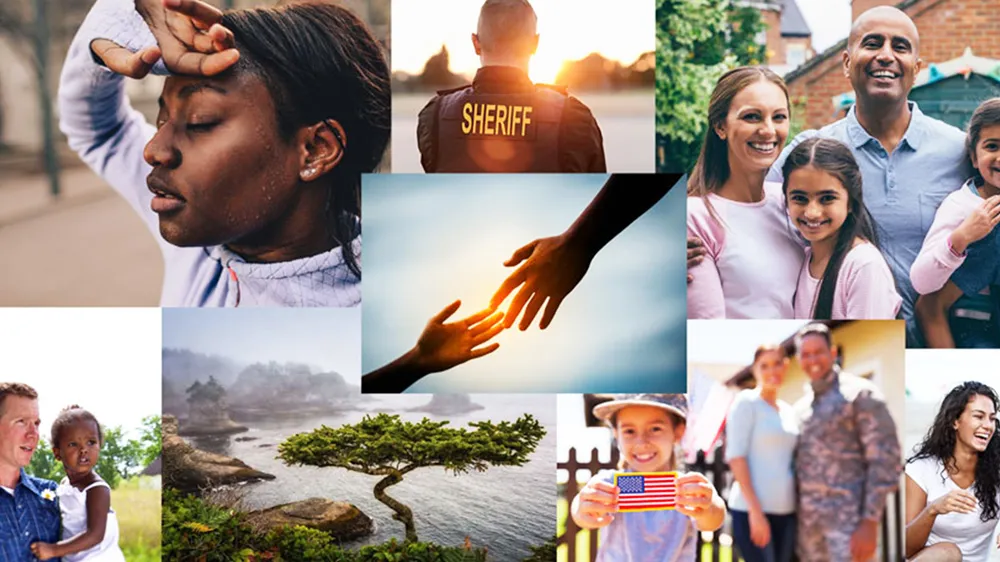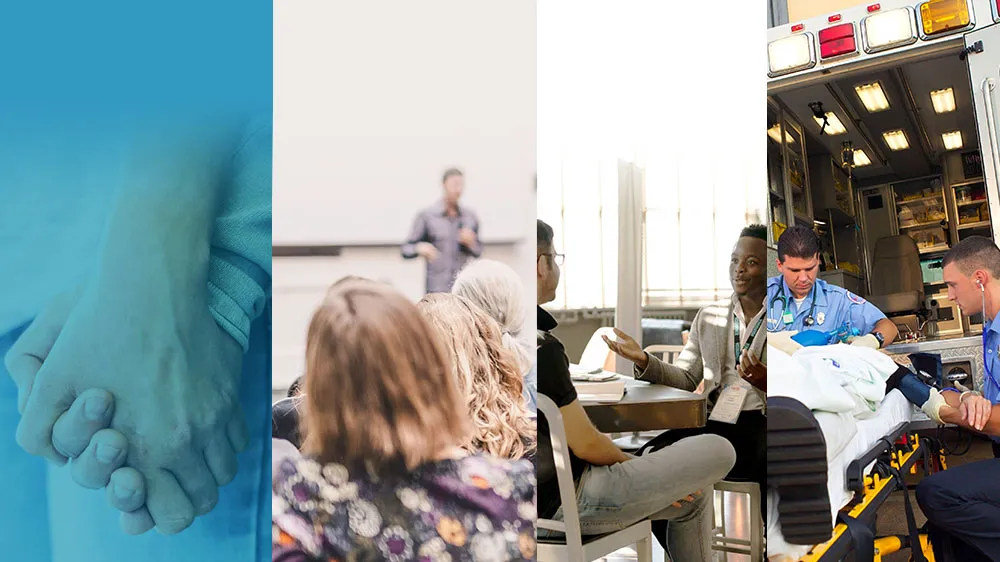
About the Institute
Advancing human resilience through interdisciplinary research, healing therapies, and community training and empowerment.Community Training & Empowerment Division
The Lyda Hill Institute for Human Resilience provides a variety of training, empowerment, and peer support opportunities through the Community Training & Empowerment division. From organizational peer support system development and training to a variety of community trainings and workshops on becoming trauma-informed, to the targeted resilience-based GRIT interventions, Community Training & Empowerment teaches the skills needed to build mental health resiliency. The division currently has contracts with a variety of large employers, such as entities within the Colorado state government, healthcare providers, and Veteran-based nonprofit organizations.
First Priority Peer Support is an evidence-informed resiliency and behavioral health initiative designed to help workforces become more resilient by training volunteers within an organization to become “Peer Supporters” and teaching them basic counseling and support skills and providing them with knowledge about stress and psychological trauma related to their occupation. With this training, these individuals can assist their peers with posttraumatic or occupational stress and guide them to an appropriate level of treatment when needed. You can learn more about First Priority Peer Support here.
Community Training and Workshops are provided to organizations to assist them in becoming trauma-informed and resilience-informed. As stress and trauma impact many professions and organizations, employees can benefit from gaining a basic understanding of the effects of stress, as well as how to foster resilience within themselves and their organizations. Learn more about our Community Training and Workshops here.
The Trauma Training Program is an online program designed to give professionals and students a basic understanding of the symptoms, impact, and treatment of trauma in various populations. The Trauma Training Program provides a foundational understanding of how stress and trauma impact the mind and body, as well as the impact of trauma on different populations. You can find additional information about the Trauma Training Program here.
The Greater Resilience Information Toolkit (GRIT) Program was developed soon after the COVID-19 pandemic began. GRIT was designed to address the needs of individuals and communities impacted by the various stressors created by the pandemic. The resilience-building program helps participants to become more resilient and to cultivate resilience within their families and communities. Over time GRIT has evolved, and now includes trainings for various populations facing a variety of different stressors. You can learn more about the GRIT program here.
Healing Division
The Healing division is made up of the Veterans Health and Trauma Clinic (VHTC) and the Institute’s newest clinic, Milestones Resilience Care. VHTC provides an integrated healing experience for individuals belonging to the Veteran, active military, and emergency responder communities, as well as family members of individuals in these groups. Please visit the Veterans Health and Trauma Clinic website to learn more.
Milestones Resilience Care is open to all and provides a new model of care that empowers clients who have experienced trauma, stress, or burnout, to find inner strength, build resilience, and overcome their negative experiences. Please visit the Milestones Resilience Care website to learn more.
Research Division
The Research division conducts both basic and applied research focused on human adaptation from adversity. The Institute is dedicated to scientific discovery related to human resilience and innovation of care models that support the human capacity to overcome, rather than reducing survivors to a set of medical symptoms. The Institute’s research has a direct impact on the development and realization of therapies that are improving the quality of life and outcomes for trauma survivors. The Institute conducts research with funding from entities such as the National Science Foundation (NSF), National Institute of Mental Health (NIMH), Department of Defense (DOD), Substance Abuse and Mental Health Services Administration (SAMHSA), Colorado Springs Health Foundation (CSHF), Colorado Department of Public Health and Environment (CDPHE), and El Paso County Public Health (EPCPH).
Our Mission
Our mission is to advance human resilience to adversity by designing evidence-based solutions through interdisciplinary research, healing therapies, and community training and empowerment.
Our Vision
Our vision is to serve as the national model in resilience-based trauma research, healing, and community empowerment solutions.
Additional Information
What is Trauma?
To learn more about trauma, click on the link below.
Research Seminar Series Videos
To learn more about Institute and affiliate research, you can watch past research seminars at the link below.
Technology and Trauma
To learn more about how the Institute uses technology for trauma research, healing, and training, click the link below.


